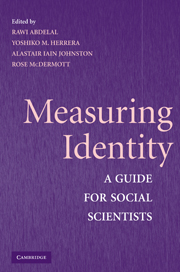26 results
Reflection: Firms, Rules, and Global Capitalism
-
- Journal:
- Business History Review / Volume 97 / Issue 3 / Autumn 2023
- Published online by Cambridge University Press:
- 03 January 2024, pp. 633-644
- Print publication:
- Autumn 2023
-
- Article
-
- You have access
- HTML
- Export citation
7 - Firms in Firmament: Hydrocarbons and the Circulation of Power
- from Part 3 - Mixed Worlds: Agility Meets Ability
-
-
- Book:
- Protean Power
- Published online:
- 28 December 2017
- Print publication:
- 18 January 2018, pp 147-165
-
- Chapter
-
- You have access
- Open access
- HTML
- Export citation
The multinational firm and geopolitics: Europe, Russian energy, and power
-
- Journal:
- Business and Politics / Volume 17 / Issue 3 / October 2015
- Published online by Cambridge University Press:
- 20 January 2017, pp. 553-576
-
- Article
- Export citation
2 - Just who put you in charge? We did
-
-
- Book:
- Ranking the World
- Published online:
- 05 May 2015
- Print publication:
- 30 April 2015, pp 39-59
-
- Chapter
- Export citation
Europe's Last Frontier? Belarus, Moldova, and Ukraine between Russia and the European Union. Ed. Oliver Schmidtke and Serhy Yekelchyk. New York: Palgrave Macmillan, 2008. x, 255 pp. Notes. Bibliography. Index. $79.95, hard bound.
-
- Journal:
- Slavic Review / Volume 68 / Issue 3 / Fall 2009
- Published online by Cambridge University Press:
- 27 January 2017, pp. 684-685
- Print publication:
- Fall 2009
-
- Article
- Export citation
Firm Interests: How Governments Shape Business Lobbying on Global Trade. By Cornelia Woll. Ithaca, N.Y.: Cornell University Press, 2008. 186p. $39.95 cloth.
-
- Journal:
- Perspectives on Politics / Volume 7 / Issue 2 / June 2009
- Published online by Cambridge University Press:
- 15 May 2009, pp. 451-453
- Print publication:
- June 2009
-
- Article
- Export citation
Contents
-
- Book:
- Measuring Identity
- Published online:
- 05 June 2012
- Print publication:
- 06 April 2009, pp v-vi
-
- Chapter
- Export citation
V - EXPERIMENTS
-
- Book:
- Measuring Identity
- Published online:
- 05 June 2012
- Print publication:
- 06 April 2009, pp 343-344
-
- Chapter
- Export citation
II - SURVEY METHODS
-
- Book:
- Measuring Identity
- Published online:
- 05 June 2012
- Print publication:
- 06 April 2009, pp 111-112
-
- Chapter
- Export citation
IV - DISCOURSE ANALYSIS AND ETHNOGRAPHY
-
- Book:
- Measuring Identity
- Published online:
- 05 June 2012
- Print publication:
- 06 April 2009, pp 277-278
-
- Chapter
- Export citation
Contributors
-
- Book:
- Measuring Identity
- Published online:
- 05 June 2012
- Print publication:
- 06 April 2009, pp vii-viii
-
- Chapter
- Export citation

Measuring Identity
- A Guide for Social Scientists
-
- Published online:
- 05 June 2012
- Print publication:
- 06 April 2009
I - DEFINITION, CONCEPTUALIZATION, AND MEASUREMENT ALTERNATIVES
-
- Book:
- Measuring Identity
- Published online:
- 05 June 2012
- Print publication:
- 06 April 2009, pp 15-16
-
- Chapter
- Export citation
1 - Identity as a Variable
-
-
- Book:
- Measuring Identity
- Published online:
- 05 June 2012
- Print publication:
- 06 April 2009, pp 17-32
-
- Chapter
- Export citation
Bibliography
-
- Book:
- Measuring Identity
- Published online:
- 05 June 2012
- Print publication:
- 06 April 2009, pp 369-408
-
- Chapter
- Export citation
Introduction
-
-
- Book:
- Measuring Identity
- Published online:
- 05 June 2012
- Print publication:
- 06 April 2009, pp 1-14
-
- Chapter
- Export citation
III - CONTENT ANALYSIS AND COGNITIVE MAPPING
-
- Book:
- Measuring Identity
- Published online:
- 05 June 2012
- Print publication:
- 06 April 2009, pp 201-202
-
- Chapter
- Export citation
Frontmatter
-
- Book:
- Measuring Identity
- Published online:
- 05 June 2012
- Print publication:
- 06 April 2009, pp i-iv
-
- Chapter
- Export citation
Index
-
- Book:
- Measuring Identity
- Published online:
- 05 June 2012
- Print publication:
- 06 April 2009, pp 409-428
-
- Chapter
- Export citation
Playing the Market: A Political Strategy for Uniting Europe, 1985–2005
-
- Journal:
- Perspectives on Politics / Volume 5 / Issue 4 / December 2007
- Published online by Cambridge University Press:
- 28 November 2007, pp. 864-865
- Print publication:
- December 2007
-
- Article
- Export citation

